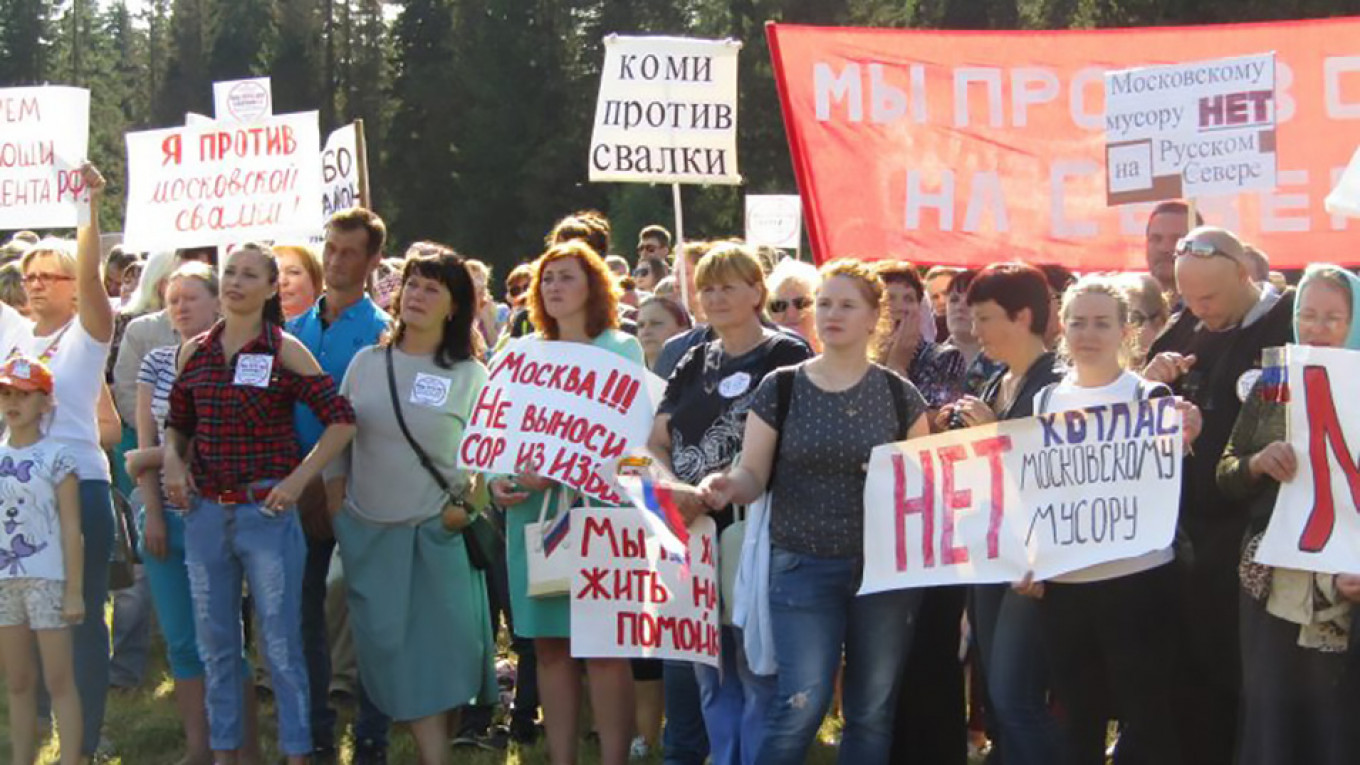
Opponents of a controversial landfill in northwestern Russia have asked Sweden, Norway and Finland for help in averting an environmental crisis, the independent Novaya Gazeta newspaper reported Tuesday.
Activists have staged protests near the small train station of Shiyes for the past year against Moscow’s plans to ship 2.3 million tons of garbage there annually. Environmentalists say that the landfill will release poisonous gases into the air and toxic filtrates into the water supplies of the Arkhangelsk region and the neighboring republic of Komi.
Five regional environmental groups have asked the three Scandinavian heads of state, as well as the regional Barents Euro-Arctic Council (BEAC) organization, for help as neighbors “that have successfully solved the waste problem.”
“Our country is drowning in garbage,” reads an excerpt from the attached letter dated Friday, July 26, and published by Novaya Gazeta on Tuesday.
“We no longer believe that the leaders of our country will hear us and ensure our constitutional right to live in habitable conditions,” the authors reportedly said.
The activists reached out to the international community because efforts to appeal to Russian authorities proved ineffective, Dmitry Sekushin, an activist with the group Pomorye Ne Pomoika (Pomorye Is Not a Dump), told The Moscow Times.
“The Russian authorities pretend that they don’t know about the problem, even though, of course, they are aware of everything,” he said. “They are doing this because they want to push the project through and make money. I am convinced that with time they will realize that they will ultimately lose money and their reputation and abandon the project because the only thing that interests them in this situation is business.”
In an interview with Moscow’s Ekho Moskvy radio station, Sweden’s ambassador in Moscow Peter Ericson said that Stockholm was ready to provide assistance and share its experience in efficient waste management.
The latest appeal to foreign powers comes a month after residents of a coal mining town in Siberia asked Canadian Prime Minister Justin Trudeau to grant them asylum.
